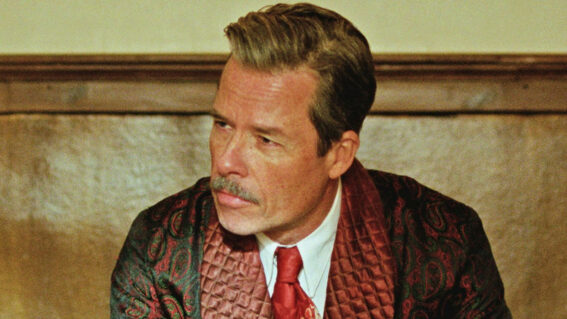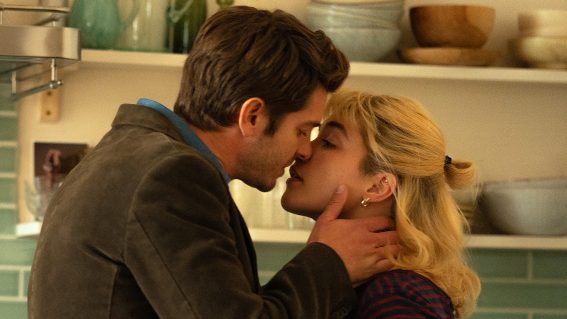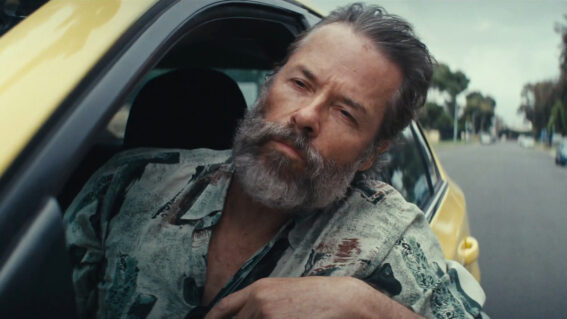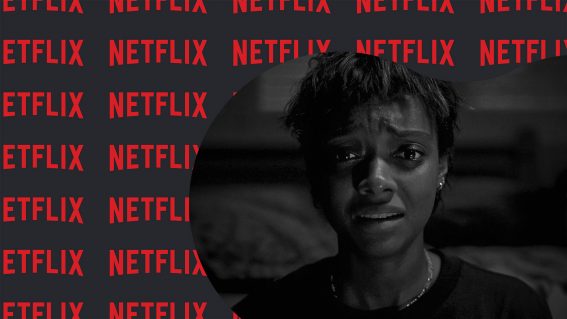Interview: S. Craig Zahler on directing Mel Gibson and filming hardcore action for Dragged Across Concrete
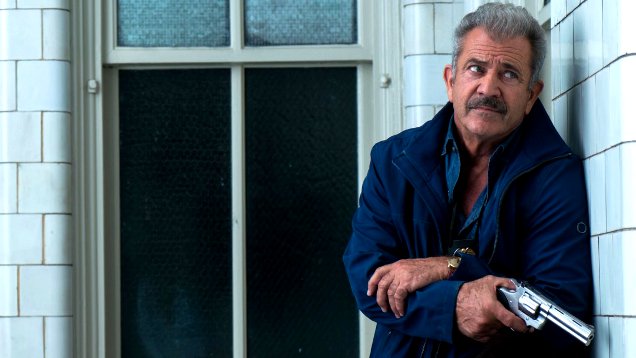
Mel Gibson plays a racist cop in the hardcore action movie Dragged Across Concrete, which premieres in Australia at this year’s Monster Fest. Sarah Ward sat down to speak to writer/director S. Craig Zahler about what is sure to be a controversial production.
With his first two features, writer/director S. Craig Zahler made an impact. Bone Tomahawk sliced into the Old West, while Brawl in Cell Block 99 brought naturalism and gore to the prison movie. One combined westerns and horror to vivid effect, the other boasted Vince Vaughn’s commanding performance and an unflinching climax – and each became movies that lingered, both in the minds of viewers and on the lips of cinephiles.
The same fate seems destined for Dragged Across Concrete, Zahler’s third film in four years. Premiering at the Venice Film Festival, it follows two police officers (Mel Gibson and Vince Vaughn) as well as a low-level criminal (Tory Kittles). When Gibson and Vaughn’s cops are suspended from duty after their cruel treatment of a suspect is caught on camera, they stumble into the path of a ruthless team of bank robbers. A movie as brutal and memorable as the rest of his filmography, Zahler once again works in a genre that he’s fond of, and once again leaves an imprint – including in his casting.
With Dragged Across Concrete opening this year’s Monster Fest in Melbourne, I chatted with Zahler about crime fiction, avoiding making a message movie and casting Mel Gibson as a controversial character.
With casting Mel Gibson in this role, did you feel a sense of his off-screen controversies perhaps aligning with his character?
I went into the movie aware that it was going to be a talking point, and I was okay with that. But I cast him because he’s a terrific actor. It’s hard to imagine someone better in that role, and I don’t say that about everyone in all of my pieces. He’s really terrific in it.
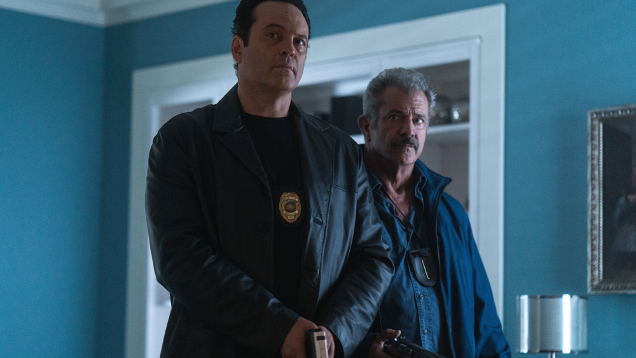
I understand that there are going to be people who forever look at him and see incidents that happened what, eight, nine years ago? They’re entitled to do that. I’m not going to tell anyone how they should feel or view someone. But I grew up drawing Mad Max comic books. When I was 12, 13 years old in the ‘80s, I was drawing comic books with him and playing RPG role-playing games like a Dungeons and Dragons kind of thing where I would play his character.
So this is someone who means a whole lot more to me than just this period. But anyone’s entitled to look at him the way that they do. My hope is that audience members would see the work, and the quality of the work, and the piece as a whole, rather than be distracted by this. But I understand that some people will, and that’s fine.
After making a western and a prison film, Dragged Across Concrete takes you into the cop genre. Where did the idea for the story come from?
A lot of the idea comes from the place of me being a fan. Obviously I’m a fan of westerns, I’m a fan of prison movies and I’m a fan of crime fiction in particular, whether it’s movies or books. And so the genesis of this picture is Prince of the City, Dog Day Afternoon, The Killing, The French Connection. Pictures like that, as well as a lot of the crime writing that I’m a big fan of: George V. Higgins, Jim Thompson, David Goodis and other writers like those.
All that stuff that I’m interested in sets things in motion, but once I start writing it, my writing process is one of surprising myself every day, so I never know exactly where it’s going. In this case, I had a very different idea where it was going to go, including who was going to survive and who wasn’t. It really comes from this place of me delving deep into what I think is interesting with the genre.
With crime, the dialogue is a real standout. A lot of my favourite dialogue comes from crime fiction. I always point to Sweet Smell of Success as one of my favourite movies of all time, and probably the single best screenplay that’s out there.
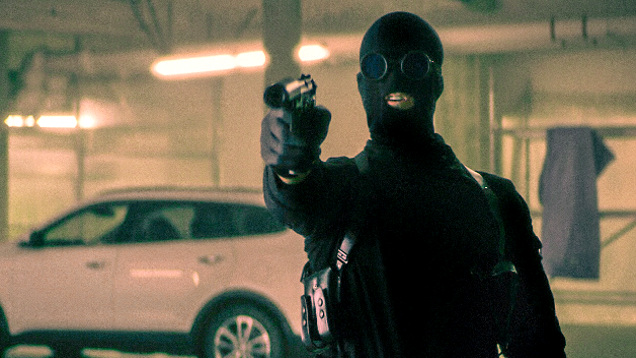
You’ve worked in genres that tap into visions of masculinity – is that a purposeful decision, or a by-product of being interested in those genres?
Choice B. This is what’s interesting to explore for me in the spaces of prisons, for sure (although actually I do have a women’s prison idea, so I don’t think I’ll be exploring ideas of masculinity there as I did in Brawl in Cell Block 99). Certainly those themes are throughout all of them. I’d say that Dragged is also exploring what it means to be a good person – or what acts you can do that sort of take you to the other side of no longer being a good person.
But there’s a lot of stuff in there. And I never want to tell anybody how to interpret my pieces, because the last part of process is whatever any individual takes away from the movie, they’re correct. That’s what they got out of it.
Police brutality sparks Dragged Across Concrete’s narrative, making the film feel very relevant to today – but you’ve said previously that you don’t make message movies. How did you approach tackling this subject without making a statement?
The thing is, I’m writing from the perspective of the characters. So some of why I don’t write message movies – and very often don’t like message movies – is that all of the elements in the story are falling in place to illuminate a point, and it starts to become the agenda/manifesto/thesis statement of the writer overruling what all of these characters are doing.
What I want to do is get in the heads of the characters. With the exception of the characters that I leave mysterious – so in this movie, the masked robbers – it’s about getting in their minds and understanding why they’re doing what they’re doing. Whether it’s an executive at a bank, as Jennifer Carpenter plays, or whether it’s a failed low-level thug trying to get over, like the Michael Jai White character, or whether it’s two police officers who are suspended for brutality as Mel Gibson and Vince Vaughn’s characters are – just understanding why they do what they do.
I certainly didn’t come it from the point that I’m saying that Ridgeman, Mel Gibson’s character, represents all police officers. This guy represents himself. And I think there’s a desensitisation that’s happened to this guy over this amount of time. So whether an audience member walks out of this movie saying “this is a terrible officer who should be off of the streets”, or “this guy needs some time off, the suspension was warranted”, or “this guy he’s great, he should do whatever the hell he wants” – that’s up to you.
I don’t want to spoon-feed that one way or another, and I’ve heard all three reactions. To me, that’s cool. That you have something where people are going to come away with different reactions is interesting. I think that’s also why I veer away from message movies. There’s a correct interpretation and a correct set of reactions you’re supposed to have – and a lot of people have very different reactions about Mel Gibson and Vince Vaughn’s characters in this movie.




